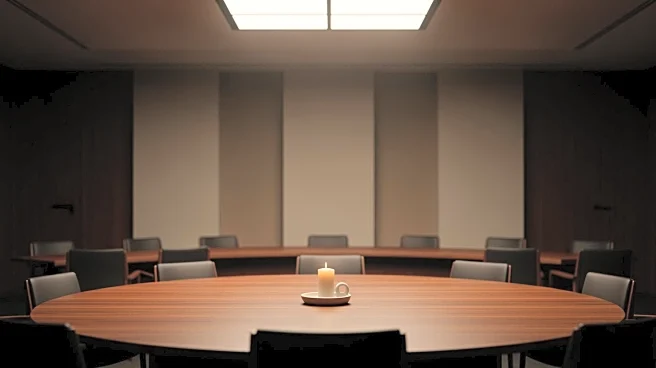What's Happening?
The United Nations Human Rights Council convened a special session to address the recent atrocities in Sudan's Darfur region, where paramilitary forces have committed mass killings and other human rights violations. The session focused on the situation
in el-Fasher, where the Rapid Support Forces (RSF) seized control and reportedly killed over 450 people at a hospital. The council is debating a resolution to conduct an urgent inquiry into these violations, aiming to hold perpetrators accountable.
Why It's Important?
The session highlights the ongoing humanitarian crisis in Sudan, drawing international attention to the severe human rights abuses occurring in Darfur. The involvement of the UN Human Rights Council underscores the global community's concern and the need for accountability and justice for victims. This development may influence international policy and aid efforts, potentially leading to increased support for Sudanese civilians and pressure on the RSF to cease hostilities.
What's Next?
The resolution, if passed, will empower a team of independent experts to investigate the crimes in el-Fasher, potentially leading to legal action against those responsible. The findings could be used in international courts, such as the International Criminal Court, to prosecute perpetrators. The session may also prompt further diplomatic efforts to resolve the conflict and provide humanitarian aid to affected regions.
Beyond the Headlines
The situation in Darfur raises ethical questions about the international community's responsibility to intervene in cases of mass atrocities. It also highlights the challenges of enforcing human rights standards in conflict zones, where political and military dynamics complicate accountability efforts. The session may spark discussions on the effectiveness of international human rights mechanisms and the need for reform.















